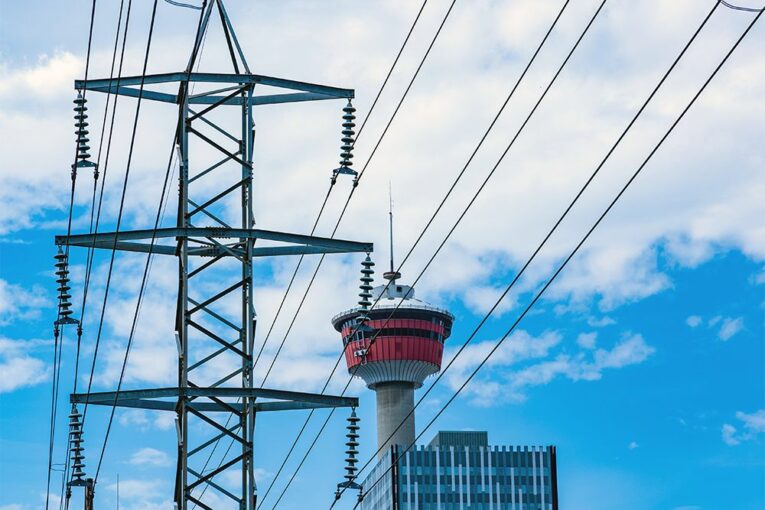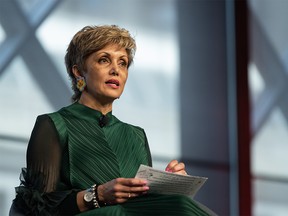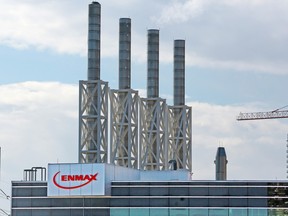
City hall can move fast, when it wants.
And when it doesn’t, a digital stopwatch isn’t needed to track its progress — a sundial might be more appropriate.
City council agreed Tuesday to review and examine possible changes that could provide relief to Calgarians by altering the way it charges residents and businesses a local access fee on their monthly electricity bills.
The city has been collecting a massive windfall from the fee over the past year. It’s due, in part, to sizzling power prices and how the local franchise fee (as it is often called) is structured.
City administration advised councillors during the meeting that it would take more than just a few weeks or months to conduct the review and then make all of the necessary changes.
“It will involve the negotiation of utility agreements and securing regulatory approval from the Alberta Utilities Commission,” Chris Stewart, the city’s director of corporate planning and performance, told the meeting.
“We would estimate that a timeline of 18 months to two years for implementation would be likely.”
That didn’t go over so well with some councillors.

After they met behind closed doors, council decided to accelerate the timing on reporting back and considering what any potential changes might look like, bumping it from the end of March (as was initially proposed) to December.
That is helpful.
Yet, it’s still not clear when any actual fixes might be implemented to aid consumers and businesses struggling with higher energy bills.
Mayor Jyoti Gondek said it’s hard to say if the 18- to 24-month timeline will still be required, noting the city can’t simply make changes on its own.
“I’m happy that we’re going to be moving forward, looking at alternatives and at options. I’m disappointed it took so long to get here because too many people believed that status quo was going to be fine,” Gondek said in an interview.
“It is not the City of Calgary that’s going to delay this by 18 months. It is the fact that whatever we decide to do — if we decide to make any meaningful changes — it will first have to get approved . . . That’s why council needs to get moving.”
I get it, this is a complicated issue.
But it surely can be done a lot faster than in 24 months.
High fees are pounding Calgarians today.
Take the case of WinSport, a non-profit community organization that expects to pay $400,000 this year, more than double the $160,000 paid in 2020.
“Homeowners, small business, big business, not-for-profits — we are all under incredible pressure with inflation,” WinSport CEO Barry Heck said Wednesday.
“There really has to be a sense of urgency here.”

The Calgary Chamber of Commerce, which issued an open letter to council last week supporting a review, welcomed the upcoming examination.
“We’ve seen city council and all levels of government be able to move very quickly when there is an appetite. We saw that through COVID,” said Ruhee Ismail-Teja, the chamber’s director of policy.
Municipalities in Alberta are permitted under provincial law to impose a fee in lieu of property taxes and right-of-way access fees on utilities. (In Calgary, the city owns Enmax Corp.)
Unlike other cities, Calgary’s franchise fees are partially linked to the regulated rate option (RRO) for power prices, although most consumers aren’t on this default electricity rate, but have instead signed up for fixed-price contracts.
The RRO is set each month, based on wholesale electricity prices, and it’s approved by the Alberta Utilities Commission (AUC).
When it increases, so does the revenue from the electricity franchise fee, which is collected by Enmax and passed along to the city.
Since 2021, the RRO has shot up by 246 per cent.
Related Stories
-

City council fast-tracks review of volatile, costly electricity fees
-

Breakenridge: Local franchise fee on electricity should not be tied to rising rates
-

City councillor has dim hopes for quick resolution to spiking electricity fees
-

Gondek requesting changes to electricity access fees amid skyrocketing energy costs
According to the city’s mid-year financial performance report, it’s expecting to see an additional $100 million in unbudgeted revenue in 2023 from local franchise fees for electricity and natural gas.
Last year, the city initially budgeted to collect $128 million from electricity franchise fees. Instead, it garnered almost $226 million. (This year, it’s budgeted to receive $117 million.)
Electricity consultant Sheldon Fulton estimates the city is on pace to receive more than $300 million this year.
He believes the matter is clearly within the city’s power to fix.
“They can change the formula,” Fulton said. “They are simply coming up with ways to procrastinate.”

In a statement, the AUC said it would need to approve any changes made by the city of Calgary in its methodology of franchise fees.
But the last time the city and Enmax applied for such approval was in 2017 — and the regulator completed its review and issued a decision in less than three months, AUC officials noted.
The province is also considering phasing out the RRO, which would require a change locally.
Councillors agreed the city would report back in December on what potential changes to the franchise fees might look like and any budget implications.
It will also come back in November with options to create an affordability program for Calgarians, before making any changes to the franchise fees.
Gondek said the details of such a program need to be worked out, as it could be a “flat-out rebate program” to something that targets assistance to those facing the greatest need.
The soaring fees have also become a concern for city businesses.
Thomas Glenwright, senior director at consultancy Energy Associates International, said a small commercial customer in the city will pay an average of $1,033 in local electricity franchise fees this year, compared with $347 in Edmonton.
Changes to Calgary’s fee structure are “long overdue,” and he noted city council could simply adopt the formula used in Edmonton or other Alberta cities.
“I would urge council to move as quickly as they can on this,” Glenwright said. “There are straightforward solutions out there.”
Chris Varcoe is a Calgary Herald columnist.
You can read more of the news on source
